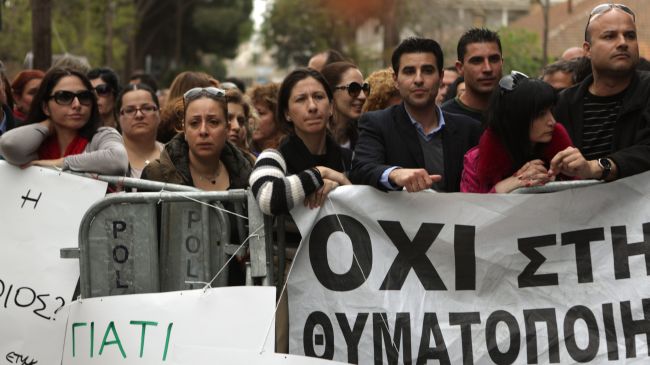Cypriots protest against EU bailout deal in Nicosia


Protesters have taken to the streets in the Cypriot capital, Nicosia, as MPs are set to debate an emergency government legislation to avoid a financial collapse.
On Friday, protesters including bank employees and depositors gathered outside the parliament building to oppose the new plan or the so-called Plan B.
Restructuring Cyprus Laiki (Popular) Bank is part of an alternative plan aimed at raising up to 5.8 billion euros to secure a larger EU rescue package. Protesters fear the new plan could hit the country’s second largest lender hard if it includes a levy on some deposits.
The Mediterranean nation must raise 5.8 billion euros (USD 7.5 billion) in funds by Monday in order to secure a 10-billion-euro (USD 12.9-billion) bailout loan from the European Central Bank (ECB) and the International Monetary Fund (IMF).
The country’s lawmakers will meet on Friday afternoon to vote on a new draft legislation made up of nine bills to raise the funds, after they rejected a proposed plan to tax bank deposits by almost ten percent earlier this week.
The country’s banks are shut nationwide until March 26 to prevent cash withdrawals, prompting people to form long lines at cash machines, which only dispense a lowered daily amount of 260 euros for each individual account.
The long-drawn-out eurozone debt crisis is viewed as a threat not only to Europe, but also many other developed economies in the world.







